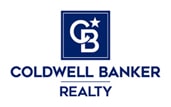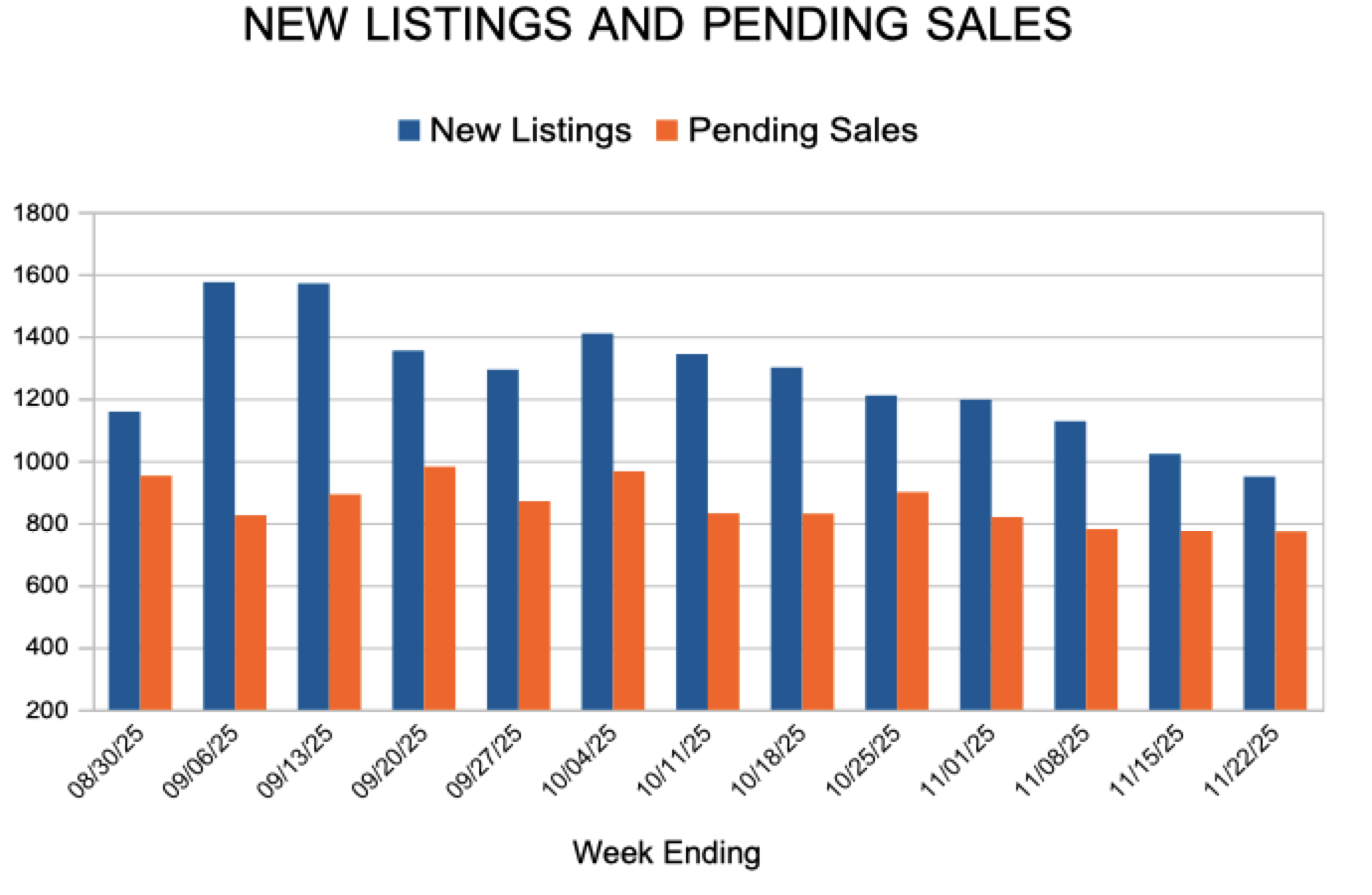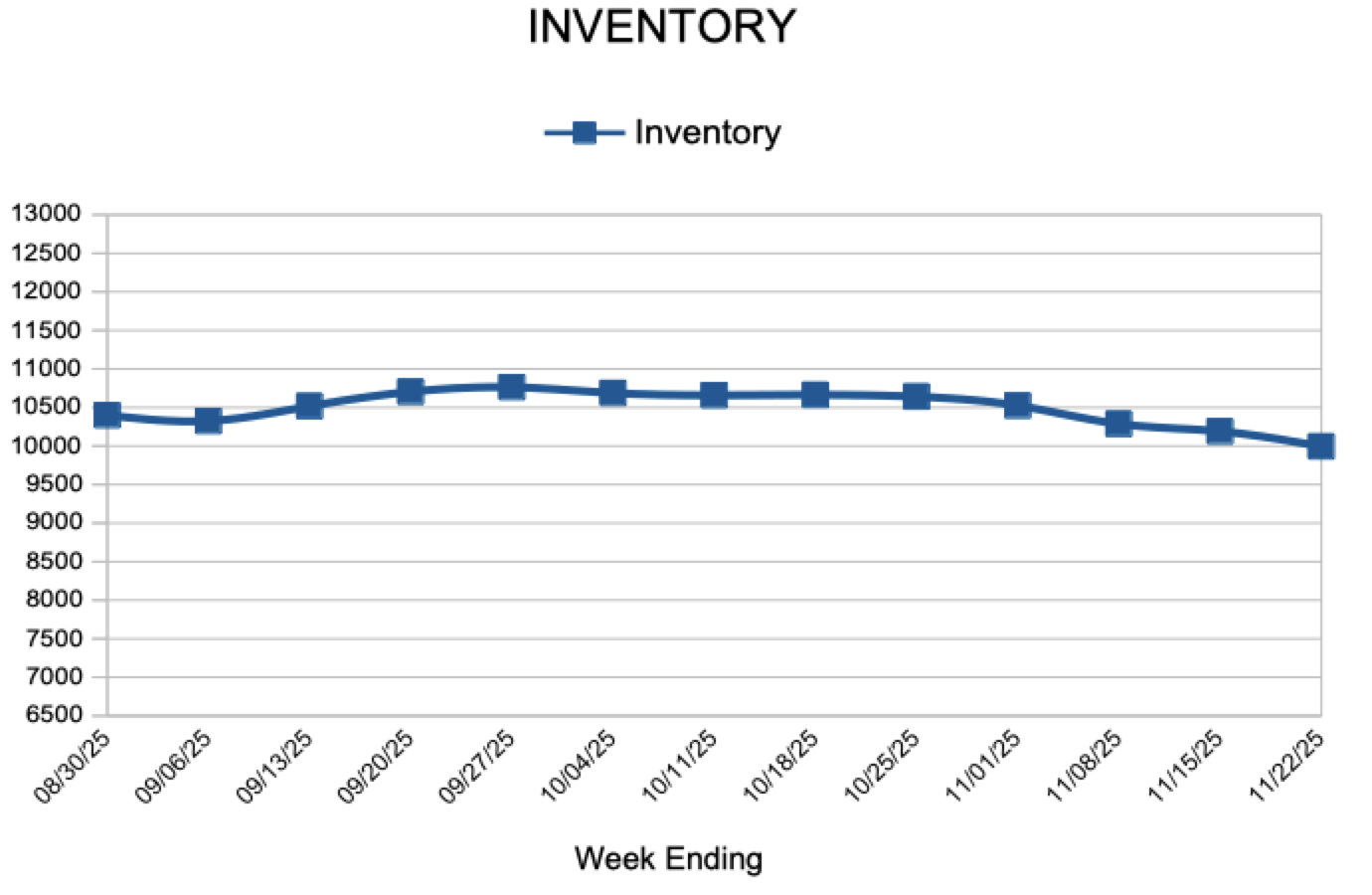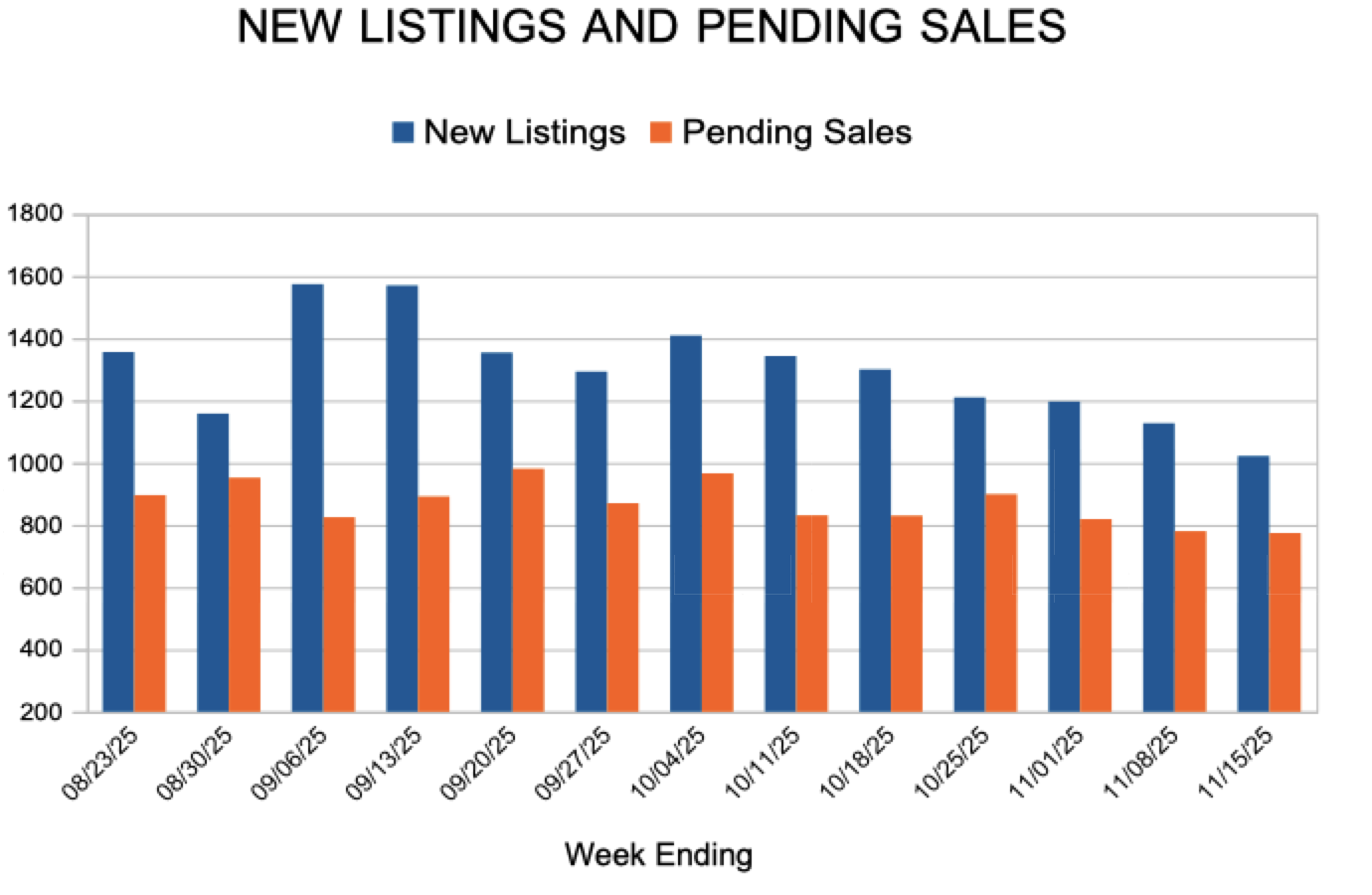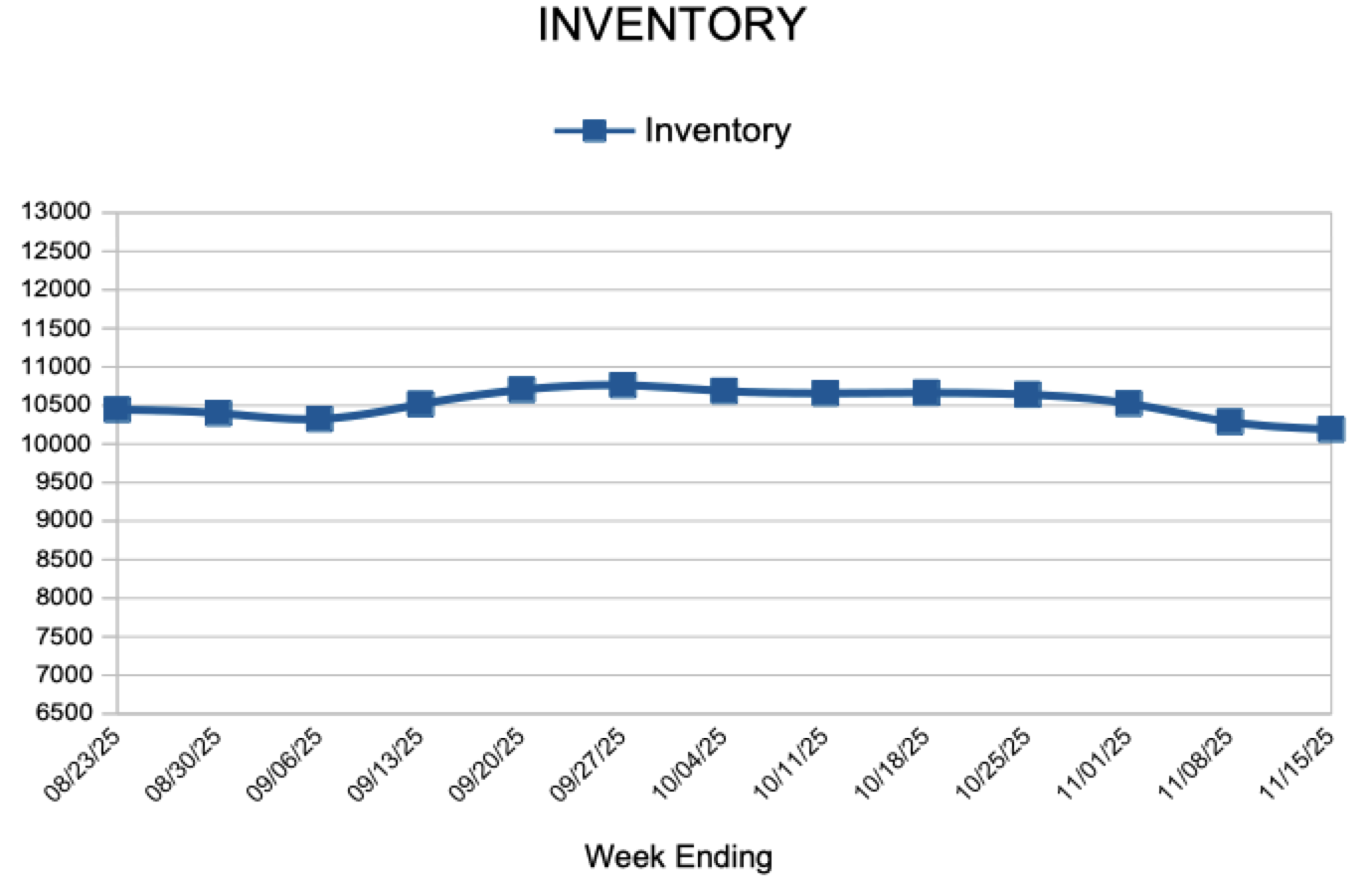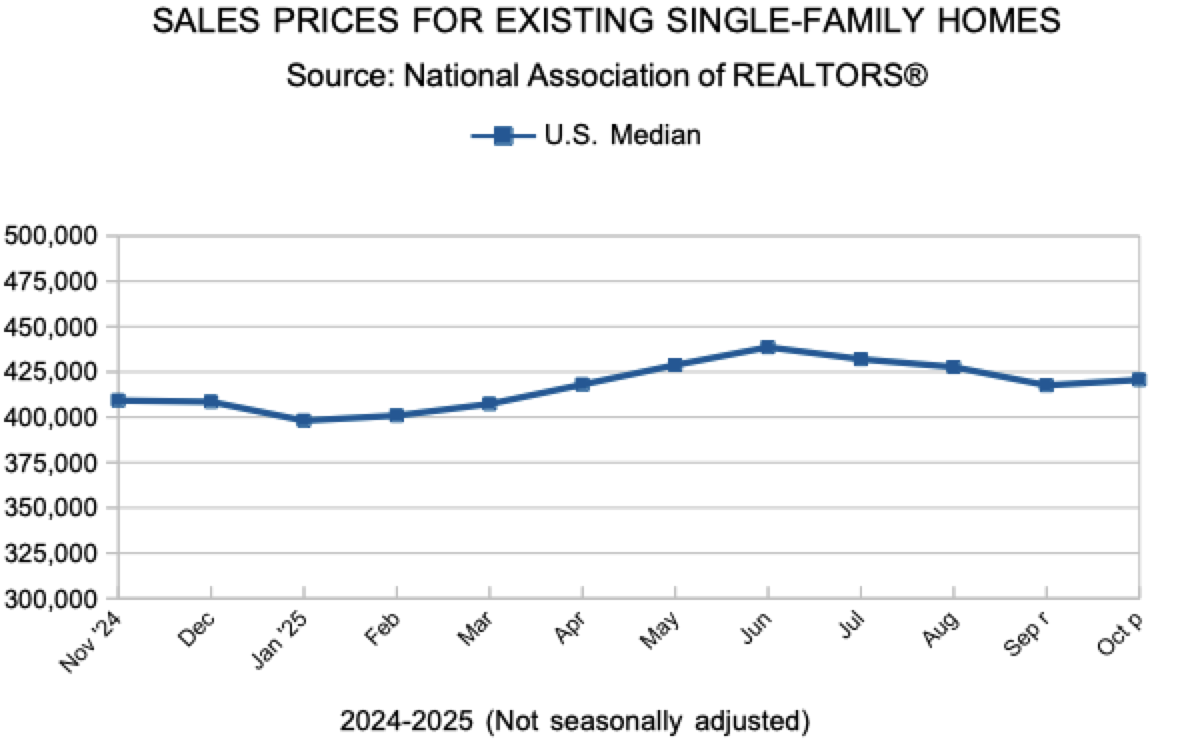Inventory
Weekly Market Report
 For Week Ending November 22, 2025
For Week Ending November 22, 2025
Nearly one-third (32.8%) of all homes sold in the first half of 2025 were paid for in cash, down 0.6% from the same period last year, according to a recent report from Realtor®.com. Cash sales were most common at the low and high ends of the price spectrum and vary across regions, with lower-priced and second-home markets often seeing more all-cash transactions than other areas.
IN THE TWIN CITIES REGION, FOR THE WEEK ENDING NOVEMBER 22:
- New Listings increased 8.1% to 949
- Pending Sales decreased 2.3% to 773
- Inventory increased 0.4% to 9,994
FOR THE MONTH OF OCTOBER:
- Median Sales Price increased 2.1% to $389,900
- Days on Market increased 6.7% to 48
- Percent of Original List Price Received increased 0.3% to 98.1%
- Months Supply of Homes For Sale decreased 3.6% to 2.7
All comparisons are to 2024
Click here for the full Weekly Market Activity Report. From MAAR Market Data News.
Mortgage Rates Decrease
November 26, 2025
Heading into the Thanksgiving holiday, mortgage rates decreased. With pending home sales at the highest level since last November, homebuyer activity continues to show resilience nearing year end.
- The 30-year fixed-rate mortgage averaged 6.23% as of November 26, 2025, down from last week when it averaged 6.26%. A year ago at this time, the 30-year FRM averaged 6.81%.
- The 15-year fixed-rate mortgage averaged 5.51%, down from last week when it averaged 5.54%. A year ago at this time, the 15-year FRM averaged 6.10%.
Information provided by Freddie Mac.
New Listings and Pending Sales
Inventory
Weekly Market Report
 For Week Ending November 15, 2025
For Week Ending November 15, 2025
The U.S. housing supply gap reached 3.8 million units in 2024, according to an analysis by Realtor®.com. For the first time since 2016, new construction outpaced household formations, with more than 1.6 million units completed last year, the highest level in nearly two decades. While builders are making progress, it would still take about 7.5 years to close the housing gap at the 2024 pace of construction.
IN THE TWIN CITIES REGION, FOR THE WEEK ENDING NOVEMBER 15:
- New Listings increased 0.7% to 1,022
- Pending Sales decreased 1.8% to 774
- Inventory increased 0.8% to 10,190
FOR THE MONTH OF OCTOBER:
- Median Sales Price increased 2.1% to $389,900
- Days on Market increased 6.7% to 48
- Percent of Original List Price Received increased 0.3% to 98.1%
- Months Supply of Homes For Sale decreased 3.6% to 2.7
All comparisons are to 2024
Click here for the full Weekly Market Activity Report. From MAAR Market Data News.
October Monthly Skinny Video
Mortgage Rates Show Little Movement
November 20, 2025
Mortgage rates have been shifting within a narrow ten-basis point range over the last month. This rate stability is a positive sign for both buyers and sellers, as it helps provide greater certainty in the housing markets.
Information provided by Freddie Mac.
Existing Home Sales
- « Previous Page
- 1
- …
- 11
- 12
- 13
- 14
- 15
- …
- 60
- Next Page »
